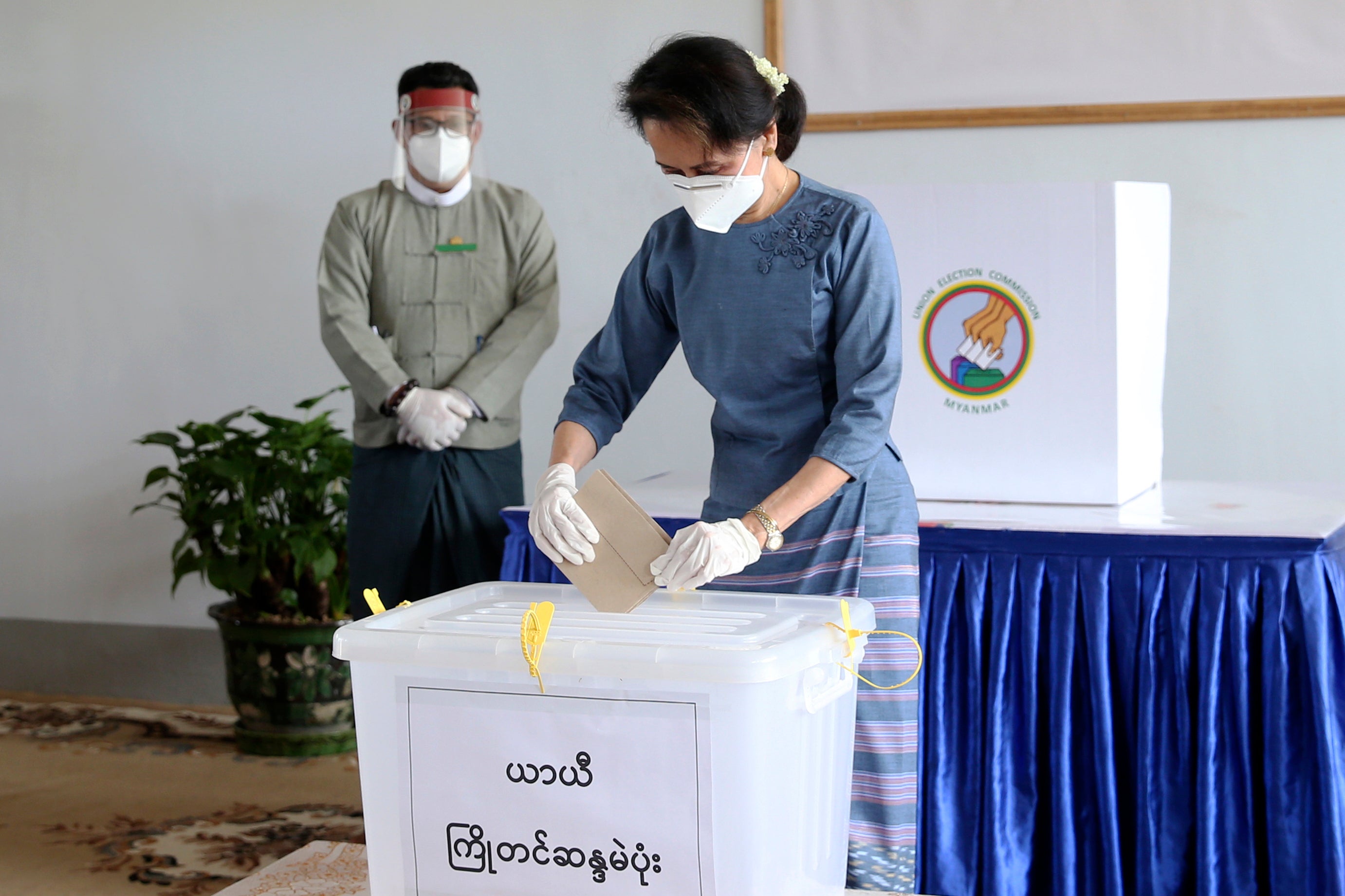Myanmar leader Suu Kyi casts her vote in November elections
Myanmar’s leader Aung San Suu Kyi has cast her ballot in advance voting for general elections during a surge of coronavirus illnesses

Your support helps us to tell the story
From reproductive rights to climate change to Big Tech, The Independent is on the ground when the story is developing. Whether it's investigating the financials of Elon Musk's pro-Trump PAC or producing our latest documentary, 'The A Word', which shines a light on the American women fighting for reproductive rights, we know how important it is to parse out the facts from the messaging.
At such a critical moment in US history, we need reporters on the ground. Your donation allows us to keep sending journalists to speak to both sides of the story.
The Independent is trusted by Americans across the entire political spectrum. And unlike many other quality news outlets, we choose not to lock Americans out of our reporting and analysis with paywalls. We believe quality journalism should be available to everyone, paid for by those who can afford it.
Your support makes all the difference.Myanmar's leader Aung San Suu Kyi cast her ballot Thursday in advance voting for general elections that are taking place during a surge of coronavirus illnesses.
The Southeast Asian country confirmed almost 1,500 new cases of infection on Wednesday alone.
Suu Kyi, whose title is state counsellor, and the country's President, Win Myint, both wore masks and gloves as they voted in the capital Naypyitaw.
Measures are being taken to ensure social distancing at the polls on election day, Nov. 8.
Advance voting is allowed and encouraged for citizens 60 years of age or older in areas where there are lock-down type restrictions because of the coronavirus, and in cases where people are staying for work in places other than their official homes. Suu Kyi is 75 and the president is 68.
Tens of thousands of citizens living overseas have also already cast their ballots.
The election commission has ruled that the polls will be held on the planned date despite the coronavirus crisis in several areas, a decision endorsed by Suu Kyi and her ruling National League for Democracy party. At least two dozen other parties had urged postponement.
The commission has also canceled voting in parts of Kachin state, Kayin state, Bago region, Mon state, Rakhine state, and Shan state, all of which are troubled by various levels of unrest.
The commission said free and fair voting could not be guaranteed in those areas, but the selective cancellation has drawn criticism. The office of the U.N. High Commissioner for Human Rights said it had serious concerns about the human rights situation in Myanmar ahead of the elections, including violations of the right to political participation, particularly for minority groups.
“While the elections represent an important milestone in Myanmar’s democratic transition, the civic space is still marred by continuing restrictions of the freedoms of opinion, expression and access to information, and the use of language that could amount to incitement to discrimination, hostility and violence,” its statement said.
Myanmar has 37 million eligible voters, including 5 million first-time voters.
The last general election in 2015 brought to power Suu Kyi’s National League for Democracy after more than five decades of military rule.
Suu Kyi, a former political prisoner who won the Nobel Peace Prize for leading the nonviolent pro-democracy movement, remains by far the country’s most popular politician.
The international condemnation of her government for allowing security forces to carry out widespread abuses of the Muslim Rohingya minority — driving more than 700,000 to seek safety in neighboring Bangladesh — appeared to play no significant role in the campaign.
Even though Myanmar now has elections, a constitution enacted in 2008 while the military still held power gives the armed forces one-quarter of the seats in the lower and upper houses of the national parliament, giving them veto power over any changes to the charter.